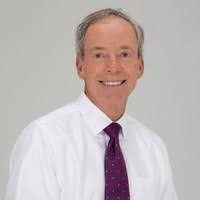An interview with Keith Koenig, chairman of the Broward Workshop
As part of its series “The Business of Climate Change,” which highlights the climate views of business men and women throughout the state, The Invading Sea spoke with Keith Koenig, chairman of Broward Workshop and CEO of City Furniture.
Here are some highlights from the interview.
Tell us a little bit about Broward Workshop and what it’s doing to help the business community address climate-related problems.
Broward Workshop is a group of about 110 CEOs from some of the largest companies in Broward County, and we get together to work to enhance the business and quality of life in our community. Climate change has become one of our key priorities, and we’re really addressing it from the economics of resiliency and the economics of climate change.
What are some of the most critical concerns businesses in South Florida have in regard to climate change? How are they working to solve them?
Risk is the intersection of frequency and severity of events, and the insurance underwriters around the world are looking at South Florida and recognizing that we’re a dangerous place as we continue to build in a coastal region.

So, the message we’re getting from them is: if you don’t do anything about it over the next few years, you run a grave risk of having your flood insurance costs go up. You’ll have property insurance costs going up. And most risky of all is we may see a change in the environment of 20- and 30-year mortgages, and that could be nothing short of catastrophic.
But the message that the risk underwriters share with us is: there’s good news. If you take advantage of this, you can actually mitigate the effects that are likely to happen and reduce the risks and really reduce your costs by making the right investments.
What are individual businesses doing to slow the acceleration of climate change? Are there businesses in South Florida that are—or have goals to become—zero waste or carbon neutral, for instance?
I think many of us are. Our company, City Furniture, has made a 2040 carbon-neutral pledge, and we’ve done certain things like move our entire fleet to compressed natural gas. We’re looking at electric—we will go that way if it makes sense.
We build LEED certified buildings wherever we possibly can. So individual companies are doing certain things, but there’s not enough any one of us can do that’s going to change anything. It really is the benefit of business leaders coming together to be able to lobby Congress or state legislators or the governor, who are all cooperative and all are starting to see things from the same way, so that we funnel our resources into the right investments.
What would someone who was just now starting a business in Florida need to consider that they might not have had to 20 years ago?
For most businesses that are starting right now, there’s no imminent risk today, tomorrow, the next day, or next year, but there is over 10, 20, 30, 40 years. So, we’ve got to prepare for the future.
The good news is we can do that. We have to get the Central and South Florida project flood control restudy into the Army Corps of Engineers’ official work plan. Those are the kinds of things one business can’t really make happen, but everybody listens when you’ve got 110 businesses in South Florida in Broward County. And we’ve got the same kind of people in Palm Beach County and Miami-Dade across the state singing from the same songbook, so I think we start to be heard at a greater level, and I believe the Legislature and the governor and the entire country are going to be quite cooperative in the next year or two. But time’s wasting. We’ve got to move on it quickly.
So, talking about the Florida Legislature, what can it do to help communities and businesses reach their resiliency goals?
We are currently lacking the comprehensive resiliency plan that we all want. And many of us are suggesting that that’s going to have to be funded through property-tax increases. And we have to do it sooner than not, so we need the Legislature and Congress to support the Army Corps of Engineers Central and South Florida restudy of resiliency, and we need a comprehensive plan.
This is a real opportunity for us to take leadership on a global level on a global problem. It’s not like we’re the only coastal city on the planet. You got to Venice, you got to go to New York City—Manhattan is not much different than where we are. We all need to band together to come up with the right answers. There’s no other option.
Kevin Mims, a Florida-based freelance journalist, is the producer of “The Business of Climate Change.” He conducted this interview with Mr. Chase.
“The Invading Sea” is the opinion arm of the Florida Climate Reporting Network, a collaborative of news organizations across the state.



